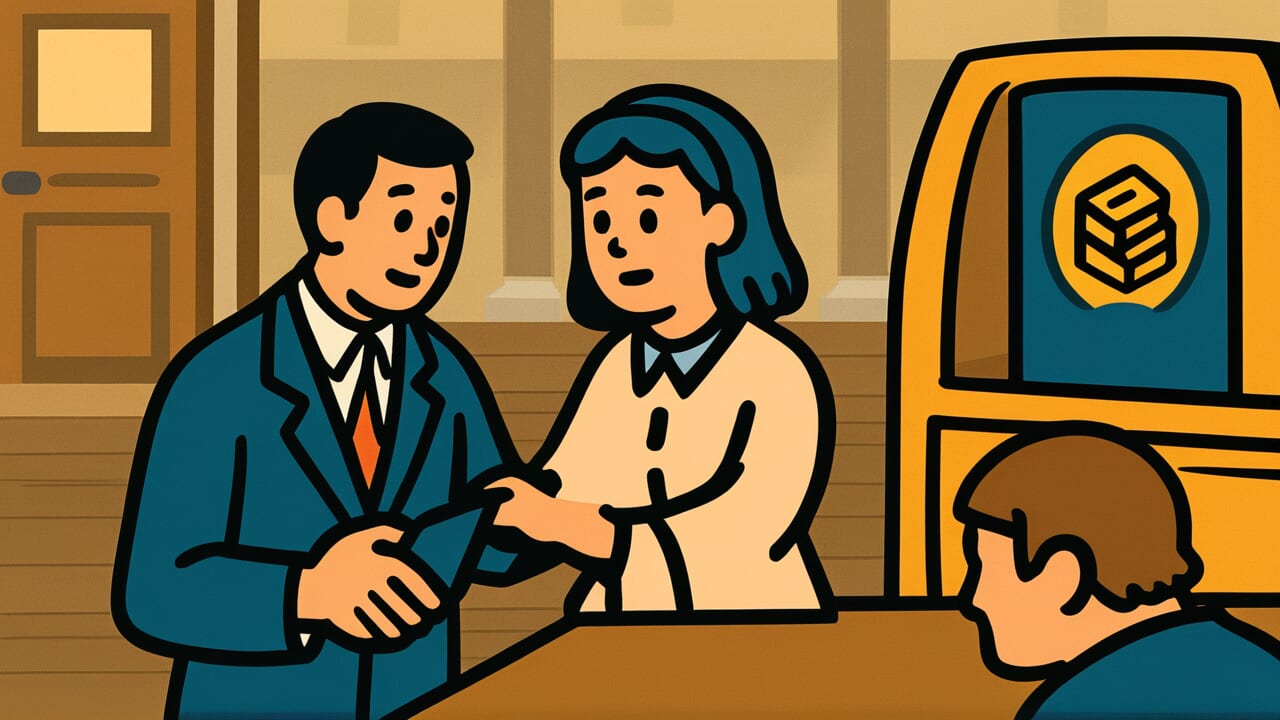How to Read “Great favors are not repaid”
Taion wa hōzezu
Meaning of “Great favors are not repaid”
“Great favors are not repaid” means that truly enormous favors can never be fully repaid. That’s why you shouldn’t try to settle them with a single act. Instead, carry gratitude in your heart for your entire life.
This proverb applies when someone saves your life, changes your life’s direction, or rescues you from desperate circumstances. These are immeasurable favors.
When you receive such great kindness, no amount of money or gifts can match it. Trying to repay it with formal gestures actually diminishes the favor’s significance.
It makes the enormous gift seem smaller than it really was.
Today, people often want to quickly “pay back” favors and clear the slate. But this proverb shows a different path.
When you receive a truly great favor, never forget it. Keep respect and gratitude for that person carved in your heart. That’s the most sincere form of repayment.
Origin and Etymology
This proverb likely comes from ancient Chinese philosophy, especially Confucianism and Taoism. The exact first written source isn’t clear.
But it probably emerged from deep Eastern thought about obligation and gratitude.
The phrase “are not repaid” doesn’t mean “don’t repay.” It means “cannot be fully repaid.” This shows a humble recognition of reality.
Eastern philosophy has always valued the relationship between favors and repayment. But it also understood a practical truth.
Some favors are so great that no amount of effort can fully repay them.
What’s interesting is that this proverb doesn’t say “forget the favor.” It means the opposite.
Because the favor is too great to repay, you shouldn’t settle it with a temporary act. Instead, carry gratitude throughout your entire life.
This thinking reflects Eastern philosophy’s focus on inner attitude over formal gestures. Don’t think you’ve cleared your debt with surface-level repayment.
Lasting gratitude is the true form of repayment. This proverb breathes with deep understanding of human nature.
Usage Examples
- A parent’s kindness follows “Great favors are not repaid”—no matter what I do, I can’t fully repay it, so I can only be grateful my whole life
- For my mentor, I hold “Great favors are not repaid” in my heart—not just formal thanks, but living by those teachings for life
Universal Wisdom
The proverb “Great favors are not repaid” hides a deep truth about human relationships. Truly valuable things cannot be exchanged equally.
We unconsciously try to make relationships equal by “repaying” favors we receive. This looks sincere on the surface.
But it’s actually a desire to escape the psychological burden of debt. We want to think “now we’re even.” That would make us feel better.
However, favors big enough to change your life can’t be settled so easily. Trying to settle them might prove you don’t understand their weight.
This proverb has been passed down for so long because humans fundamentally fear owing debts. But people also know something else.
The most important relationships exist beyond keeping score.
A parent’s love, a teacher’s guidance, someone who saved your life. In these relationships, don’t aim for complete repayment. Choose lasting gratitude instead.
This is a mature form of relationship that humanity has reached. Because you can’t fully repay it, you don’t forget it.
This paradoxical wisdom shows deep understanding of human nature.
When AI Hears This
Favors that are too large actually trap both parties in a “never-ending game.” From a game theory perspective, this has an interesting structure.
Normal favors work as a “lending game.” If you borrow 10,000 yen, you return 10,000 yen and it’s over.
This is a finite game with a clear ending condition. But great favors like having your life saved have no repayment standard.
You don’t know what the other person wants. You keep giving, thinking “maybe it’s still not enough.” Then they feel guilty and try to give back.
This creates an infinite loop.
Mathematically, this resembles a non-converging series. Just as 1+1+1+1… has no end, the repayment game for great favors has no stopping point.
Both parties constantly pay the psychological cost of “carrying debt.”
Here’s where choosing the “not repaid” strategy causes something remarkable. When both recognize “you don’t need to repay anymore,” the game itself disappears.
This isn’t conflict or defeat. It’s simultaneous escape from pointless competition. In game theory terms, it’s “cooperative equilibrium.”
It’s the rational solution where both parties feel most at ease. Not repaying great favors is actually maximum consideration for the other person. That’s the paradox here.
Lessons for Today
This proverb teaches modern people a kind of liberation. You don’t have to settle everything.
In modern society, when someone does something for us, we quickly return the favor to restore equality. This looks smart.
But we might be missing opportunities to build deeper relationships.
When you receive a truly great favor, you don’t need to strain yourself trying to repay it. Instead, don’t forget that kindness. Keep gratitude in your heart.
And if possible, reach out to help someone else who’s struggling. Even if you can’t repay the favor directly, you can pass it forward to the next person.
You’re here today because many people supported you. Parents, teachers, friends, sometimes people whose names you don’t even know.
You can’t repay all those favors. But you can remember the gratitude and pass that warmth to the next generation.
Don’t rush to repay everything perfectly. Live with gratitude. That’s the rich way of life this proverb shows us.



Comments